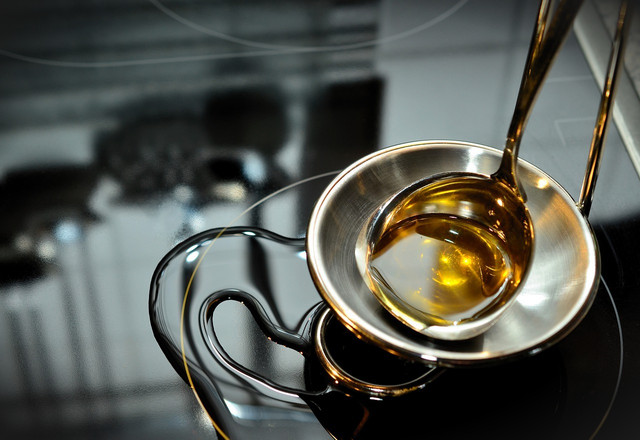Sunflower oil is often cited as a beneficial addition to your diet, but you may be wondering if sunflower oil is actually bad for you. We offer insight on the pros and cons of sunflower oil.
Sunflowers are one of the few crops native to the US. Cultivated and used by Native Americans for more than two thousand years, they present a fairly versatile product since they are robust and tolerant to drought. The seeds from sunflowers can be processed into vegetable oils, biofuel, and livestock feed, while other seed strains can be eaten whole or ground into nut butter.
Is Sunflower Oil Bad For You?



(Foto: CC0 / Pixabay / Bru-nO)
Aside from your every day cooking as well as an ingredient in various dishes, sunflower oil is often used as a medicine and a skin treatment. It is available in several different forms, each with a unique formula with its own health benefits. These include topical treatments for acne, eczema, inflammation, and skin irritation. According to the National Institutes of Health, studies have shown that sunflower oil may also prevent hair thinning and help combat hair dryness and damage.
Sunflower oil as part of your diet provides a good source of Vitamin E and K, is low in saturated fat, and high in two types of fatty acids; polyunsaturated fatty acids and monounsaturated fatty acids.
US National Library of Medicine research has revealed that Polyunsaturated fatty acids (PUFAs) can reduce harmful cholesterol and triglycerides in the blood, while monounsaturated fatty acids (MUFAs) may reduce heart disease, making sunflower oil a good choice for maintaining a healthy heart.
There are three types of sunflower oil you should be aware of:
- Linoleic Sunflower Oil is a polyunsaturated oil that contains linoleic acid, which is one of the two essential fatty acids your body needs. This kind of sunflower oil is most commonly used in things like salad dressings and margarine.
- Mid-Oleic Sunflower Oil has low saturated fat levels and is often found in snack foods that market themselves as a healthier option to your typical salty treats like chips and crackers.
- High Oleic Sunflower Oil is high in monounsaturated (oleic) acid. This oil will normally contain at least 80% oleic acid and is trans-fat-free. This option is often more expensive but offers a longer shelf life than other types.
Sunflower Oil Drawbacks & Alternatives



(Foto: CC0 / Pixabay / congerdesign)
Growing sunflowers is fairly harmless so long as they are grown without the use of chemical pesticides that will invariably contaminate water, soil and the atmosphere. However, when it comes to the large-scale production of sunflower oil, we start to encounter some problems. Sunflower oil requires huge amounts of water and the poor carbon footprint of the industry could be greatly improved upon.
Despite this, sunflower oil production remains relatively sustainable since there is no known significant damage to the environment so long as pesticides have not been used.
Sunflower oils are well-known as being low-allergenic, but you should keep in mind that oils that are not high oleic will contain more omega-6, which may lead to health issues such as inflammation. National Institutes of Health assert that sunflower oil emits toxic aldehyde fumes when exposed to high heat over extended periods, when compared to other vegetable oils.
If any of these potential issues are a concern to you, you might opt for more neutral oils such as grapeseed, canola, or vegetable oil as sunflower oil substitutes. Olive oils and avocado oil are also options you might want to consider to still enjoying the nutritional benefits, although we generally advise against the latter due to the environmental impact of avocado oil.
Ultimately, using a variety of oils as part of your cooking routine will help you strike a better balance between the types of fat in your diet as a whole.
Read on:
- Can You Fry With Olive Oil? What to Watch Out For
- 9 Coconut Oil Health Benefits You Need to Know
- How to Fry Eggplant with Less Oil
Important Information regarding Health-related Topics.
** Links to retailers marked with ** or underlined orange are partially partner links: If you buy here, you actively support Utopia.org, because we will receive a small part of the sales proceeds. More info.Do you like this post?








